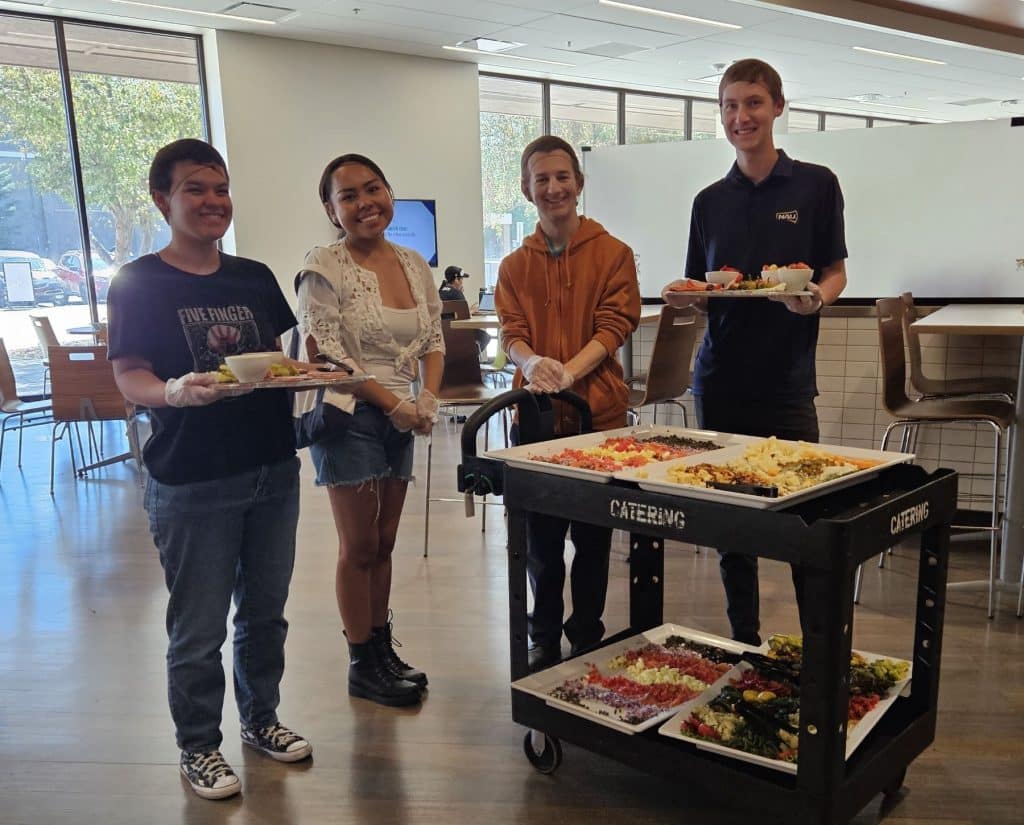In the United States, an estimated 44 million people face food insecurity, while 40% of our food makes its way to landfills, producing greenhouse gases that contribute to climate change. At NAU, two initiatives are in place to redistribute food that would otherwise be discarded: the Food Recovery Network and Louie’s Leftovers, both aiming to make a positive impact in the community and on campus.
Campus food for community kitchens and shelters
Four days of the week, a small group of volunteers gathers at the Hot Spot in the University Union. There, kitchen staff indicate which unused food items are safe to recover, and the volunteers collect, weigh and pack those items for transport. Once gathered, the volunteers deliver this surplus food to a community partner organization such as Sunshine Rescue Mission, where anyone in the community can access homemade meals twice per day.

“There is perfectly usable food thrown into the trash every day, so we want to intervene, even in just a small way,” said Cory Tompkins, an Honors College student majoring in environmental and sustainability studies. Beyond being motivated to divert waste, Tompkins said, the club’s members are “passionate about supporting local nonprofit organizations” and making an impact at the community level.
In addition to near-daily food recovery on campus, FRN participates in larger initiatives, including one project that recovered food from the players’ tailgate event in Glendale leading up to the 2023 Super Bowl. There, FRN was able to redirect 2,901 pounds of landfill-bound food to those in need.
Fran Alvarado, sustainability coordinator for campus dining, said the club is always in need of volunteers and is looking to expand its efforts to additional campus dining locations. Food recovery volunteers operate in groups of two to three people—one or two recovering food and one driving to the partner location. Volunteers must commit to a 45-minute shift beginning at 2 p.m. and wear closed-toed shoes, long-sleeved shirts and long pants. NAU community members can sign up for volunteer shifts online. Those who would like to learn more or get involved in other ways can contact Alvarado directly.
Catered food for campus residents
For students on campus, there is another way to help redirect leftover food, and that’s by eating it!
The Louie’s Leftovers program started in 2018 as an additional way to help close the loop on food waste. Through this program, students can sign up to receive notifications on the NAUgo app about leftover food at catered campus events. The window of availability is typically short, but students who are in the right place at the right time can take advantage of this opportunity for a free meal.
To sign up for notifications, students must have the NAUgo app on their phones. They can then opt-in to notifications via the messages section of the app. Notifications will include both the location of the food and how long it will be available. For food safety reasons, students must eat at the event’s location.
Jessica Clark | NAU Communications
jessica.clark@nau.edu




